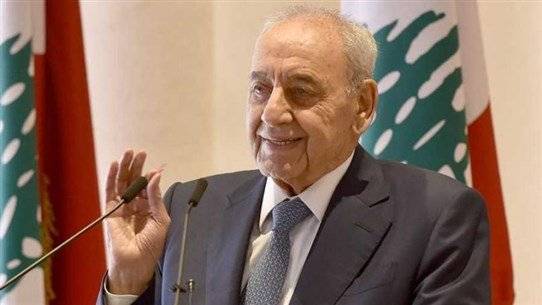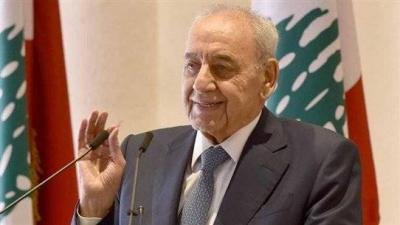The American movement in the file of maritime border negotiations between Lebanon and Israel has achieved a new breakthrough, described by the Foreign Minister in the caretaker government as "huge progress," although it has not yielded a final agreement that would resume the indirect negotiations between the Lebanese and Israeli parties in Naqoura, which will not take place until the agreement is completed, awaiting the return of American mediator Amos Hochstein "soon to the region to achieve the desired result."
Hochstein joined an important meeting in Beirut yesterday with President Michel Aoun, Parliament Speaker Nabih Berri, and caretaker Prime Minister Najib Mikati at the presidential palace, where he presented the Israeli response to a proposal Lebanon submitted back in June regarding the demarcation of borders. Hochstein described the meeting as "very important," expressing optimism about achieving "further progress in the southern maritime border demarcation file." He told reporters after the meeting, "I remain optimistic about ongoing progress as we have done over the past weeks, and I look forward to returning to the region and being able to advance the final arrangements."
Aoun emphasized before the meeting that the goal of the negotiations is "to preserve Lebanon's rights and work through cooperation with the American mediator to reach conclusions that safeguard our rights and resources, creating an opportunity to revive the economic situation in the country as soon as the negotiations conclude."
While Lebanese sources confirmed that Hochstein "listened to a unified Lebanese position according to the declared Lebanese constants," Berri only stated after the meeting, "God willing, it will be good." Later, Berri informed "Asharq Al-Awsat" that Lebanese officials felt "seriousness" this time in the negotiations, revealing that the American envoy "did not carry a specific proposal, but we discussed suggested solutions." He declared that he informed the Americans of "Lebanon's insistence on maritime border demarcation" as a mandatory route for solutions, referring to proposals presented by Israel that suggest merely sharing oil wealth according to a formula acceptable to both sides.
Berri announced that the American envoy promised to return with Israeli answers within two weeks. Mikati did not make any statement as he left Baabda Palace, content with a positive hand gesture.
Deputy Speaker Elias Bou Saab, who participated in the meeting, stated that "the atmosphere is positive, and the gap in existing disagreements on this file has narrowed," pointing out that "the time frame separating us from the American mediator's return to Beirut will be short." He noted that "everyone was comfortable, and we are waiting to achieve what was discussed during the meeting, and hopefully, we will see results in the coming weeks in this regard."
In response to a question, Bou Saab said, "No one has asked us to divide the blocks and extend the pipelines, and Lebanon demanded its blocks in full without any change in its position; Hochstein has never offered us any sharing of wealth, blocks, or profits with the Israeli enemy."
Lebanon rejects the sharing of wealth and joint production from the border fields, viewing it as "a form of normalization" with Israel. Since early June, developments related to the maritime border demarcation file between the two countries have accelerated after a production and storage vessel approached the Karish field, which Beirut considers to be in disputed territory, paving the way for the start of gas extraction from it. This prompted Beirut to demand the resumption of negotiations with American mediation.
Bou Habib confirmed after the meeting with Hochstein yesterday that "the Lebanese position is united," stating, "There is huge progress, and the negotiations are ongoing and not yet over, and we await the Israeli reaction." Hochstein is expected to carry the Lebanese demand to Tel Aviv and return with answers, based on which the fate of resuming indirect negotiations at the United Nations headquarters, under its flag with American mediation in Naqoura, in the far southwest of Lebanon will be determined.
The discussions were initially supposed to be limited to a maritime area estimated at about 860 square kilometers defined by line 23, based on a map Lebanon sent to the United Nations in 2011. However, Lebanon later argued that this map was based on incorrect estimates and demanded to examine an additional area of 1,430 square kilometers that includes parts of the Karish field, referred to as line 29.
Lebanese sources indicated that the delay in resolving the file is due to the time required for Hochstein to obtain an Israeli response. There were reports in Lebanese internal discussions that Presidents Aoun, Berri, and Mikati "listened to Hochstein's proposal, and Lebanon's position was unified in adhering to all its rights and oil blocks," asserting their demands to secure line 23 and the entire Qana field while insisting on Lebanon's oil rights.
Lebanon rejects the Israeli offer on demarcating borders based on line 23 while receiving the full Qana field and simultaneously returning to the meandering line in the deep sea, which amounts to cutting a section of block number 8. The Qana field is located in an area where line 23 intersects with line one, which Israel submitted to the United Nations, extending beyond line 23.
An Israeli official, who requested to remain anonymous, described Hochstein's visit to AFP on Sunday as "a moment of truth," indicating that the latter carries an Israeli proposal that is considered "a concession for both parties." The offer, according to the same source, allows "Lebanon to develop the field in the disputed area (...) while preserving Israel's economic interests," clarifying that the field is "Sidon field," which is known in Lebanon as "Qana field."




